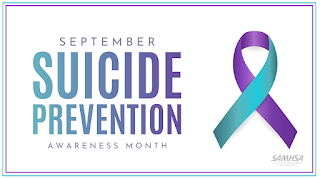We Are Here to Help.
It has been a hard couple of weeks, y’all. A shooting on the campus of one of our schools is devastating to the entire community. In addition to responding to that crisis, your W-S/FCS Student Services personnel (counselors, social workers, psychologists and nurses) were also dealing with suicide assessments, threat screenings, and physical and emotional crises (some of these during other school lockdowns) across the District.
Schools are statistically VERY safe places for
children but, when school shootings do happen, people start looking for
answers. We all want someone or
something to blame. Gun control and
metal detectors are the most common responses.
Research has not proven that metal
detectors – or other “hardening” of schools with security guards and cameras –
have any positive effect on school safety. In fact, there is evidence that metal
detectors can make our students FEEL LESS SAFE at school. Additional research
suggests that such measures may actually INCREASE levels of violence in
schools. Please read the research on
these practices (nicely summarized here, with
links to multiple evidence-based studies).
The
National Association of School Psychologists (NASP) recommends addressing a full continuum of services that lead to improved safety, well-being, and
learning for ALL children, instead of simply increasing school building
safety measures, such as armed security guards, metal detectors, and
surveillance cameras.
In the past, I’ve heard Sheriff Bobby Kimbrough make the comment that we have a tendency to “focus on the fruit and ignore the root.” This continues to resonate with me. If you want to be a part of the solution, focusing on the “root,” here are some action steps you can take:
1. Complete training to be a bus driver. Due to shortages, our students are spending a LOT of unstructured time on buses. Bus drivers have an incredibly important role in keeping students safe. I don’t know about you but, at the end of a long day of work, I don’t want to hear that my transportation is not available, and I’ll be picked up after another route is already run. We can eliminate that stress for students. Let’s show up for our kids by getting them home safely and efficiently at the end of every day.
3. Donate to local food banks. Do you know how many of our students rely on their schools as a primary source of nutrition? Many of our families struggle with food insecurity. Food is just one of a child's basic physical needs. Needs lower down in the hierarchy must be satisfied before individuals can attend to needs higher up, such as relationships, belonging, and a sense of self-esteem and accomplishment.
You can find information on how to donate or host a food drive here. Let’s show up for our kids by making sure that the basic need of food is being addressed.
4. Avoid negative language surrounding mental health. Our students need to know that it’s okay to not be okay. Model for them by expressing that you may be feeling upset, angry and scared right now. We should all be feeling that way. If you need tips on how to talk to your child about violence, you can find those here and here. Remind children to look for helpers when they are feeling scared.
Some of us have the coping skills to deal with those big feelings but, if not, it has to be okay for us to get professional help. Let’s show up for our kids by normalizing mental health care and getting help for ourselves and for them when it’s needed.
7. Contact your legislative representatives. Do you know that there is pending legislation RIGHT NOW on FUNDING for issues such as providing additional mental health resources for all students, supporting the recruitment and retention of school psychologists, and even mandating school-based threat assessment teams to take a proactive approach to help struggling students? The recommendation for comprehensive service delivery is 1 school psychologist for every 500 students. I currently serve 3,791, meaning that there should be about 7 of me to fully meet the needs of my students. (If only cloning were that simple! 😕). You can also contact our local Forsyth County Board of Education members with your thoughts and concerns. Let’s show up for our kids by demanding that our State and Local governments provide the resources and policies we need to ensure the social-emotional well-being of ALL our students.





Comments
Post a Comment